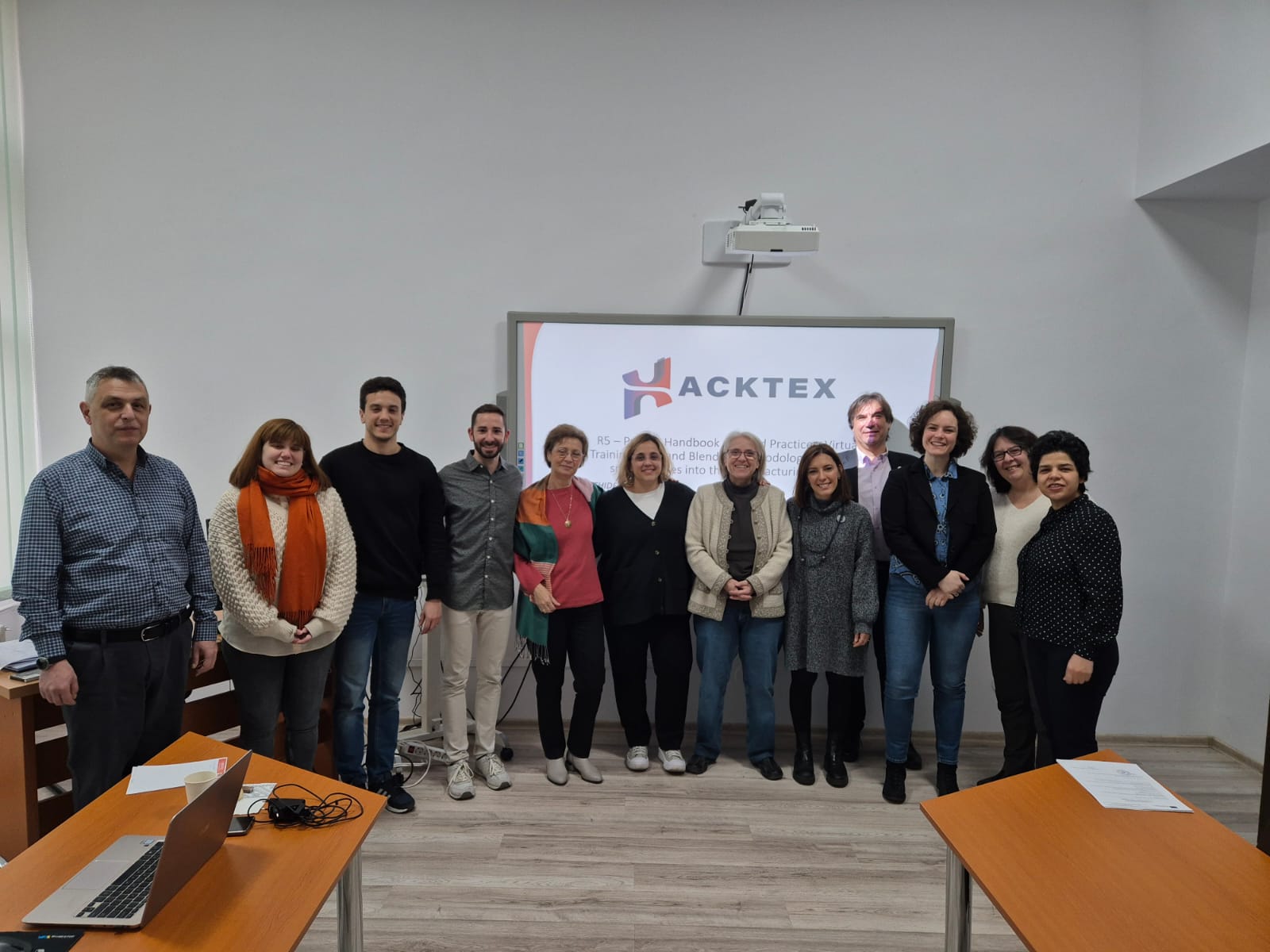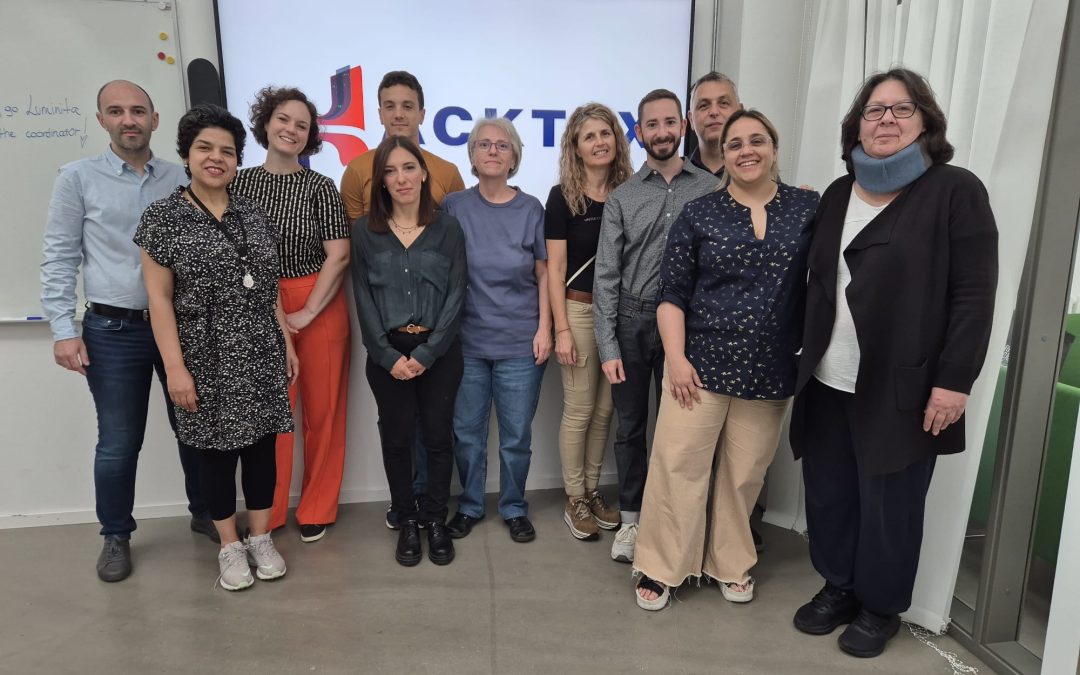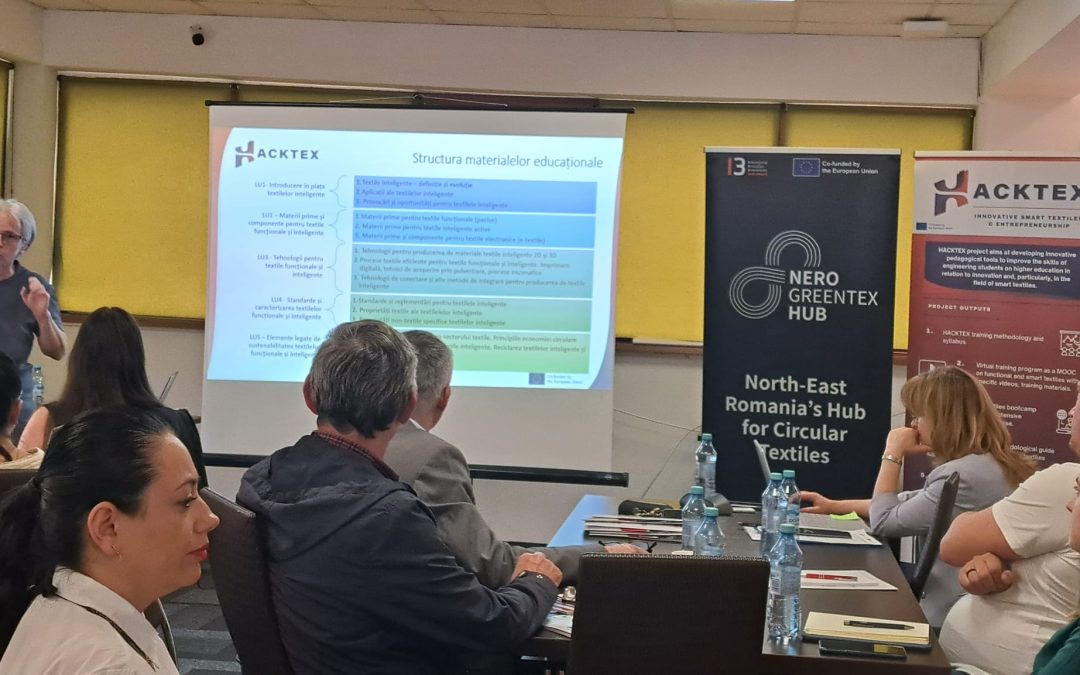This week, on 7th and 8th of February, the Hacktex consortium met in Iasi for its 5th Transnational Project Meeting. It was organised and hosted by TUIASI, the project coordinator, and all partners agree on its fruitful outputs.
The meeting began with TUIASI, giving an overview of the current progress of the project as well as some management and financial guidelines to all present partners.
Then, the quality leader, Cre.Thi.Dev., provided information regarding to the internal project evaluation as well as some tips for the partners to keep on implementing the project tasks in an efficient way.
Later, the consortium discussed about the project implementation and results: R2 – Virtual training program on functional & smart textiles, R3 – Industrial & smart textiles bootcamp (intensive course for students), R4 – Virtual guide on smart textiles entrepreneurship, mostly.
For the R2, the development of the virtual training materials are already done. The partnership agreed on the creation of a direct access to the virtual platform, where the MOOC will be allocated, from the Hacktex website. All this, to make it as open and accessible to all publics as possible.
Regarding the result R3, the University of Borås presented the outcomes of the bootcamp training program experience, which took place last November in Borås, Sweden, involving students from the three universities members of the consortium.
R4, led by TITERA, was also discussed. TITERA presented the concept of the virtual guide -which will be a tool to exploit properly the Hacktex training program- now that all partners have made contributions during last months.
Following to this, AEI Tèxtils, presented how the project has been presented and exploited beyond the partnership with some data and statistics related to the project website, social media profiles, and related events.
Finally, partners also discussed about the content and organisation of the R5, a “handbook of good practices to foster smart textiles into manufacturing sector” which will collect all the relevant learnings and good practices during the project implementation and will represent a tool for both academia and SMEs in the implementation of Smart Textiles dynamics within their fields.






